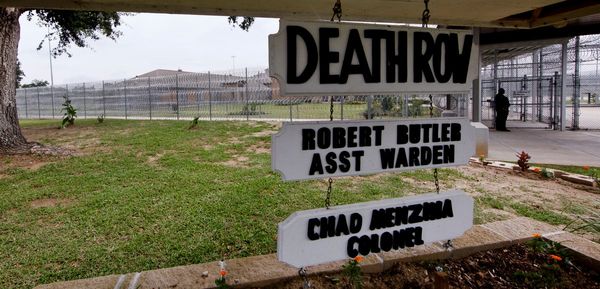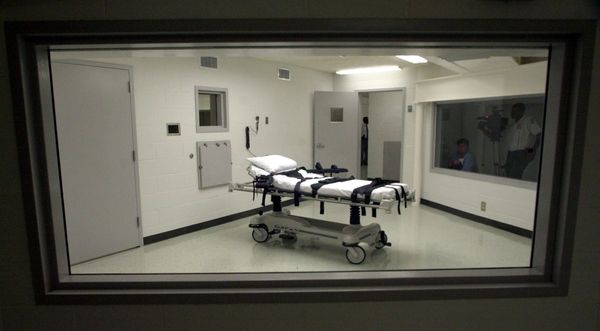TAMPA, Fla. — Three days before Christmas, Catherine Owens found the pink notice taped to her door telling her she was being evicted from the Temple Terrace apartment she shared with her 58-year-old mother.
The women had five days to vacate, the notice said.
Owens, 30, had applied for rental assistance three months earlier through Florida’s emergency relief program, called Our Florida.
She said she had been working as a nursing aide for a small agency and inconsistent shifts made it difficult to stay on top of bills. She ended up going to work for Office Depot.
Owens’ application for assistance was approved in September, and she was told she’d receive seven checks totaling more than $8,000. The money was earmarked to cover rent for the last quarter of 2021 and the first two months of 2022. It was also to help her pay a balance owed after she missed rent payments in August and September.
Owens said she felt good when she found out she was approved. It was a layer of security she hadn’t had before.
Checks to cover rent for October and November arrived, but Owens said the back payments for September and August never came. Our Florida records show those checks were never deposited and have expired.
Owens gave her property manager documentation that money was on its way, but the apartment management company proceeded with eviction.
As she scrambled to pack what she could fit into a travel bag — clothes, bathroom supplies, the essentials — Owens pulled out her phone and fired off an email in a final attempt to get the help she had been promised.
“Hello my name is Catherine Owens... I have been calling Our Florida for months,” she wrote to a case manager with the agency. “I’m facing eviction when I’m supposed to be receiving help from this program. PLEASE I NEED IMMEDIATE HELP!!!”
She never heard back. Owens and her mother turned in their keys, piled into their car, and drove more than 500 miles to her uncle’s house in North Carolina.
“We were homeless, just like that,” Owens said.
Unreturned calls
As the moratorium on evictions was lifted last August, a flood of filings were made against tenants around the country who had fallen behind on rent. At the same time, billions of dollars in federal relief had been rolled out to states from the U.S. Treasury to assist people, like Owens, who had been financially affected by the pandemic. Early studies found that many states, including Florida, were slow to hand out rental assistance aimed at averting mass evictions.
But even for those who got in line, the money has not provided the lifeline intended.
As Owens waited on assistance to arrive, and her landlord inquired about missing payments, she said she tried contacting Our Florida to get answers.
A review of Owens’ phone records shows she called the program support number more than nine times in December. Her call history doesn’t go back more than the month, but she estimates she reached out to inquire about the missing payments and warn of a pending eviction at least 30 times over the three months she was waiting.
“I’d be on hold for hours sometimes, and the line would disconnect,” Owens said. “When I did get through to a customer service person, they’d tell me the same thing over again.”
We’ve taken your case number.
We’ll escalate your concerns.
Somebody will be in touch with you soon.
“Then nothing would ever happen,” Owens said. “It was so frustrating.”
An Our Florida representative said that if a scheduled payment is flagged as undeposited, the agency reaches out via text to the renter 45 days after the payment was sent, and again after 60 days. Then, the agency said it makes three phone calls to the tenant to offer assistance.
When asked to comment on Owens’ case and for answers to questions about how many phone calls they receive each day, how many customer support staff are available to answer client inquiries, or how common Owens’ situation is, the agency said it would get back to the Tampa Bay Times.
After eight days of interview requests made via phone and email to Our Florida, the agency has not returned comment.
‘Lack of transparency’
Florida received more than $870 million to distribute for rent and utility relief, through Our Florida, a program under the Department of Families and Children.
But the administration and dispersion of funds has been roiled with problems and slow to get money into hands of the people who need it.
In July, the Tampa Bay Times reported the program had distributed just 2% of allocated funds. Although other states were similarly slow to distribute — only 6.5% of funds had been distributed nationally at the time — others moved quickly. Texas, which was a national leader at the time, had distributed 47%.
In the six months since, Florida has dramatically ramped up distribution, according to data released by the Department of Families and Children. As of Jan. 3, the department said that the program had provided approximately $700 million to more than 135,000 households.
The department has posted updates about its distribution pace on social media platforms. They often attract comments by people who say they are renters like Owens, inquiring about missing payments and unreturned calls.
Mercy Roberg, the director of operations and an attorney for the Pinellas Community Law program, which provides free legal advice for people in need, said Owens’ experience is not unique.
Roberg said that just since December, her organization has worked with around 25 people who are facing evictions while waiting to receive payments from Our Florida.
“They’ll have been approved through the portal, but the money doesn’t come,” Roberg said. “Clients trying to call the center on their own never get a response.”
Roberg said that it has made it really difficult to argue eviction cases in court.
“It is almost impossible for me to take a case and get in front of a judge and say payment will be arriving in four days because (we don’t know) if it will,” Roberg said.
And Roberg said that she’s starting to see apartment complex operators say they won’t accept government assistance checks because the payments take too long to arrive.
“There’s a lack of transparency from the state,” Roberg said. “If you’re just an individual renting and trying to navigate the system on your own, it’s almost impossible to break through the web of non-information.”
Rajni Shankar-Brown, a professor of social justice education at Stetson University and vice president of the National Coalition for the Homeless, said that when systems that are supposed to be supporting renters break, the damage is especially harmful.
“There’s a sense of false hope, and it prevents a person from making other plans,” Shankar-Brown said.
Shankar-Brown said that navigating applications for assistance can be a challenge for many people, especially those who haven’t had to before.
And, said Shankar-Brown, as cities face an increase in evictions and housing insecurity, it’s important to remember that people of color, particularly women, are often disproportionately affected.
“It’s really important to mention the intersectional connections with systemic racism and gender violence,” Shankar-Brown said. “Which in Florida, there’s a deep history of.”
Holding on
After Owens and her mother were evicted, the women spent a night sleeping on the floor of what she described as her uncle’s “crumbling” North Carolina home before deciding to return to Florida.
“The conditions were worse than we were expecting,” Owens said. “My mom has health problems; we couldn’t stay.”
For a handful of nights, a minister from a Tampa church used her own money to put the mother and daughter up in an Airbnb, while they tried to figure out a more permanent plan. She said she’s since lost her job at Office Depot, because she had to miss work, so she’s trying again to find employment as a nursing aide.
On Jan. 6, after the Times contacted the Department of Children and Families with questions regarding Owens’ case, she received an email from a program representative regarding her assistance.
“I attempted to call you but in all honesty there is an issue with our outgoing phone system and the call hangs up mid ring,” the representative wrote. “Incoming calls seem to be good though.”
Owens returned the call to the agent the following day, and said that she was reassured that the program would again look into providing her assistance, and would work with her former apartment complex to try to get her back in her home.
Owens said she hasn’t heard from the representative.
“I’ve called three times,” Owens said. “I’ve emailed. I don’t know what else to do.”
———







